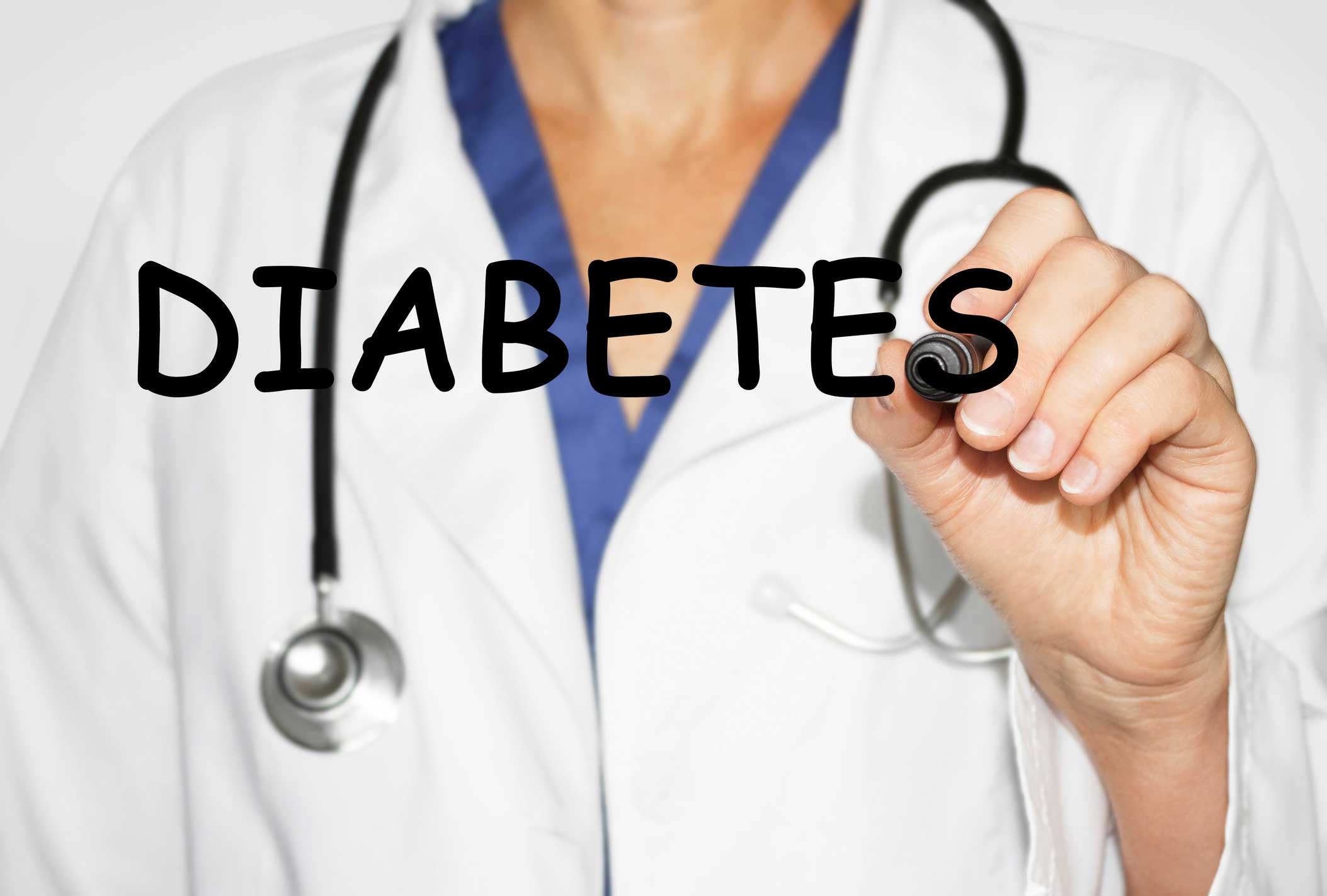
One of the gains of bariatric surgery is remission or improvement of Type 2 diabetes. As obesity has become an epidemic in the US, with more than one-third of adults being obese, so has diabetes. The worldwide prevalence of type 2 diabetes is estimated at 8.3 percent of the adult population and projected to increase to 10 percent by 2030. As many as 23 percent of patients with morbid obesity have Type 2 diabetes. This is the why scientists have called it the “double epidemic.”
Of all diseases associated with excess weight, diabetes has the strongest association. Ninety percent of all patients with Type 2 diabetes are overweight or obese. Unlike Type 1 diabetes, which is caused by the body’s inability to make insulin, Type 2 diabetes occurs as a result of the body’s inability to react properly to insulin (insulin resistance). Research has shown for every 5 percent increase in weight at age 20 and older a 20 percent risk of insulin resistance is seen by middle age. The relative risk of diabetes increases approximately 40 times as the body mass index (BMI) increases from less than 23 to more than 35.
Bariatric Surgery: A Metabolic Surgery
Early in the history of bariatric surgery, it was recognized diabetes was “cured” with surgeries like the Roux-en-Y gastric bypass. Some people would leave the hospital with normal blood sugars and no medications, even before they lost any weight. But the misconception is that bariatric surgery “cures” diabetes. This is incorrect. In the same manner, obesity is not “cured” with bariatric surgery. Diabetes and obesity are chronic diseases. Bariatric surgery is one effective way to manage these diseases.
This is the main reason the American Society of Bariatric Surgery changed its name to American Society of Metabolic and Bariatric Surgery. Surgeries like the gastric bypass, sleeve gastrectomy and duodenal switch have a profound metabolic effect and may lead to remission of diabetes.
Criteria used by scientists to determine remission of diabetes are variable. One criteria, for example, may recommend a HbA1C (glycosylated hemoglobin) of equal to or less than 6 percent without any medications and as a result a five-year remission rate would be 29 percent for gastric bypass and 23 percent for sleeve gastrectomy. A less strict criteria may use a HbA1C less than or equal to 6.5 percent without any medications and the remission rate at seven years after surgery would then be 49 percent for gastric bypass and 28% for sleeve gastrectomy. No matter what criteria one uses, these results are impressive and cannot be replicated with another treatment modality.
What Predicts Remission Of Diabetes?
Duration of diabetes is one of the strongest predictors of remission after bariatric surgery. The day a person is diagnosed with Type 2 diabetes, approximately 50 percent of his pancreatic cells are already dead. Research has shown that if one intervenes with surgery in the first five to seven years after diagnosis of diabetes, there is a higher chance of remission. The longer one waits, the smaller the chance that diabetes will go into remission. Use of insulin or a large number of medications for diabetes and poor preoperative control of diabetes are other factors associated with less chance of remission. Researchers from the Cleveland Clinic have developed an individualized metabolic surgery score calculator that can help inform the chance of diabetes remission following gastric bypass or sleeve gastrectomy.
With an estimated global spending on diabetes of at least $376 billion in 2010 and projected to reach $490 billion in 2030, one wonders why the public and insurance carriers do not embrace bariatric surgery more. Currently, bariatric surgery is performed in approximately 1 percent of the eligible population. The American Diabetes Association and other medical societies have recognized the beneficial role of bariatric surgery and have added bariatric surgery to the algorithm of Type 2 diabetes treatment.
There are many barriers and misconceptions about the safety of bariatric surgery that our society needs to address to improve patient access to bariatric surgery. With an excellent safety profile, bariatric surgery is a valuable and effective treatment for Type 2 diabetes, and a better investment of health-care dollars for the treatment of the double epidemic. Patients with Type 2 diabetes should be offered a consultation with a bariatric surgeon upon diagnosis.
Intervening in the first 5-7 years improves the chance of diabetes remission. The clock is ticking.
Dr. Pavlos K. Papasavas is the Director of Surgical Research and Co-Director of Metabolic and Bariatric Surgery at Hartford Hospital.


